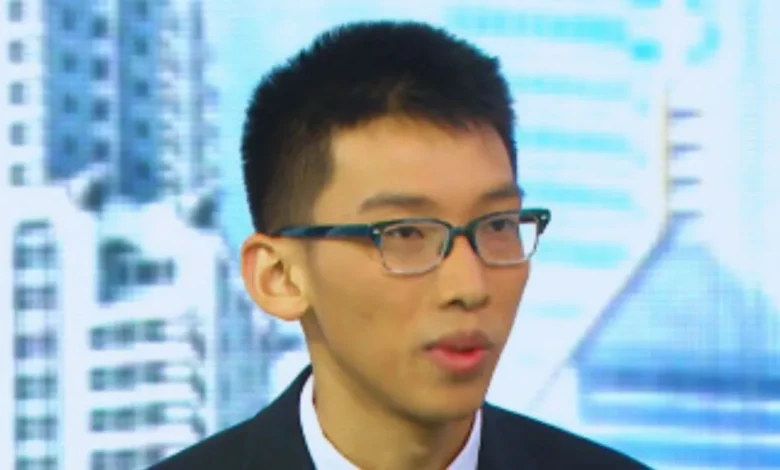Andrew Jin: Bridging Data Science, Ethics, and Health Innovation

Who is Andrew Jin, and why are more tech, science, and healthcare people noticing him? AI, healthcare tech, and young scientists are shaping the future. Andrew Jin stands out in this world. He combines strong academics, creative product ideas, and a clear sense of purpose. He’s not just a bright student who won awards. His early machine learning and biotech work sparked real talks among experts and mentors.
You may have heard of him through the Intel Science Talent Search. That’s where high school students work on challenging science problems. Or perhaps you know him from Commure. It’s a company that helps hospitals run better using innovative tools. Whether you care about medical tech, young leaders, or contests like the USA Computing Olympiad, his story has something for you.
This article will take you through Andrew Jin’s journey. His work shows how innovation can genuinely help people, from winning awards to building fundamental hospital tools. His story offers more than just inspiration. It shows the kind of leadership our world needs right now.
Who is Andrew Jin?
Andrew Jin is an American computer scientist and entrepreneur who has made his mark in AI and biotech. Even at a young age, he stood out for his mix of technical skills and real-world thinking. At 17, he earned second place in the Intel Science Talent Search. This contest ranks among the top science competitions for high school students in the United States. In it, Jin used machine learning to study gene changes that help people resist disease.
After graduating from Harvard, Jin focused on tech startups and healthcare. He co-founded Dorsal, a company that created innovative software for medical teams. Commure later acquired Dorsal. His success comes not just from intelligence, but also from a clear goal: to use technology to help people. This mindset earned him respect among tech and health experts.
Now, he serves as a senior product leader at Commure. There, he creates digital tools that help doctors and hospitals use data more effectively. His career reflects both talent and responsibility.
Work at Commure and Education Background
At Commure, Andrew Jin plays a key role in designing healthcare software. The company builds digital tools that connect patient records and support collaboration among medical teams. Jin leads product design. He helps hospitals operate more smoothly, prevent errors, and improve patient care. His job goes beyond writing code. It involves solving big problems within complex systems.
His educational background prepared him well. Jin earned a degree in computer science from Harvard University. While there, he studied AI and machine learning. These subjects taught him how to build programs that manage sensitive medical information. He also learned the ethical side of using tech in medicine.
By combining his education with hands-on experience, he now creates trusted tools for doctors. His work shows how thoughtful design can improve healthcare. The Harvard Crimson once highlighted his academic and startup path as a sign of where health tech may be heading (Harvard Crimson, 2016).
Awards, Recognitions, and Achievements in Science Competitions
When Andrew Jin was in high school, he won top honors in two of the toughest science contests in the United States. These contests were the Intel Science Talent Search and the Siemens Competition. He used artificial intelligence in his research to find gene changes that help the body fight illness. He applied deep learning in a new way, which opened the door to more research in genetics.
Alongside these wins, he also excelled in the USA Biology Olympiad and reached the top level in the USA Computing Olympiad. These contests have high standards. They often launch the careers of tomorrow’s scientists and engineers.
These early successes gave Jin the push he needed. They helped him earn the trust of researchers, professors, and fellow tech creators. He proved that he wasn’t just another student but someone ready to make a lasting difference in science.
Dorsal and Its Acquisition
Andrew Jin launched Dorsal to fix a major issue in healthcare: poor communication between care teams. His company built tools that allowed doctors and nurses to share patient data safely. His vision wasn’t just to make another app. He wanted to solve a real-life problem that affected patient outcomes. His team designed software that worked with hospital systems and fit into doctors’ daily routines.
What made Dorsal stand out was its focus. While many startups chased big trends, Dorsal improved small details that truly mattered. As a result, the changes made a significant impact. Larger health-tech firms took notice of the company. Eventually, Commure acquired Dorsal.
The sale confirmed that Jin could lead a company from idea to success. It showed he understood more than just technology. He knew how to tackle real-world challenges in healthcare. It was a significant step in his growth from student entrepreneur to industry expert.
Participation in the Intel Science Talent Search and his impact on Healthcare
Jin developed a project in high school that earned second place in the Intel Science Talent Search. He used AI to study DNA and discover patterns tied to disease resistance. His work stood out because he translated complex data into precise results. Scientists and judges praised his method and clear thinking.
That early success helped shape Jin’s goals. He realized he didn’t just want to build smart systems—he wanted to help people stay healthy. The award opened doors to mentors and labs that allowed him to keep learning. His ability to mix biology with data science became a major strength.
The Intel Science Talent Search has a reputation for spotting future science leaders. According to the Society for Science (2015), Jin’s project showed how students could solve real-world health issues using data. It marked the start of his mission to improve healthcare.
AI Work and Publications
Jin’s work in artificial intelligence plays a central role in his career. He trains computers to analyze genes, identify disease risks, and predict patient outcomes. He doesn’t simply follow AI trends—he transforms them into practical tools for doctors and researchers. His work is technically strong and grounded in real-life application.
Additionally, he shares his findings through research papers and group projects. Andrew helps others learn how to use AI responsibly in science and healthcare. Jin doesn’t just build smart systems. He ensures they are practical, safe, and easy to use.
This balance has earned him respect in both science and business. Jin may not seek the spotlight, but people often mention his name when discussing ethical and effective AI in healthcare.
USA Computing Olympiad and USA Biology Olympiad Success
Andrew Jin showed talent in both computer science and biology during high school. He earned top honors in the USA Computing Olympiad (USACO) and the USA Biology Olympiad (USABO). These are two of the hardest academic contests in the country. They test more than memory—they challenge deep thinking and creativity.
In USACO, he reached the Platinum Division. This is the top level and requires advanced problem-solving under time pressure. In USABO, he became a semifinalist by showing strong lab skills and knowledge of biology. Excelling in both contests is rare and proves Jin’s ability to learn across disciplines.
His performance revealed not just talent but strong commitment. According to the Center for Excellence in Education (2014), students who do well in these programs often become science leaders. Jin’s achievements placed him among the best.
Chemotherapy and Environmental Research
Alongside his other scientific work, Jin also explored cancer research. He used machine learning to examine how chemotherapy drugs could work together more effectively. Treating cancer involves testing many drugs, which can be risky. Jin created a model that helps doctors choose safer and more effective combinations. His work could reduce harm from trial treatments.
At the same time, he worked on solving environmental problems. He studied how pollution affects living things and ecosystems. It connected his biology background with public health and the environment. He used the same careful approach in this research as in medicine.
These projects reveal a deeper theme in Jin’s work. He wants to protect life, whether helping patients or caring for nature. His early research won praise at science fairs and from expert judges.
Final Thoughts
Andrew Jin’s path goes beyond a list of awards. It clearly shows how curiosity and purpose can work together. From winning major science contests to leading at Commure, he proves that innovation should solve real problems. His tools help doctors, research supports better care. His leadership reflects purpose, not ego.
So what can we learn from his story? It may show how young people can lead real change. Or maybe it reminds us that the future of tech belongs to those who ask why it matters. Andrew Jin’s story will inspire you if you’re a student, a startup founder, or someone who values ethics in science.
Andrew Jin reminds us that innovation matters most when it improves lives. That’s the kind of change worth building and worth sharing. And if you’re building something meaningful, keep going. The world is watching, and your impact might be next.
RELATED: Meet Jennifer Gu: The Mind Behind PulseFit and WellNest



